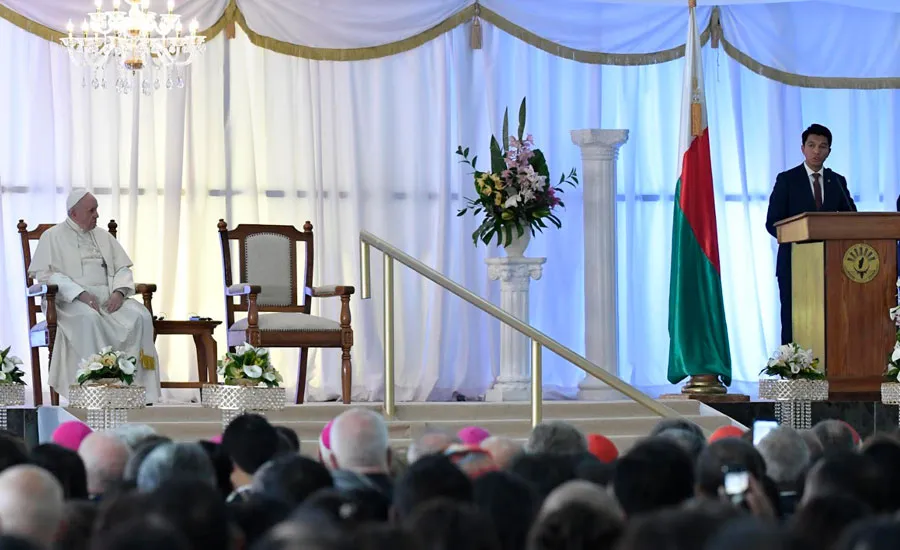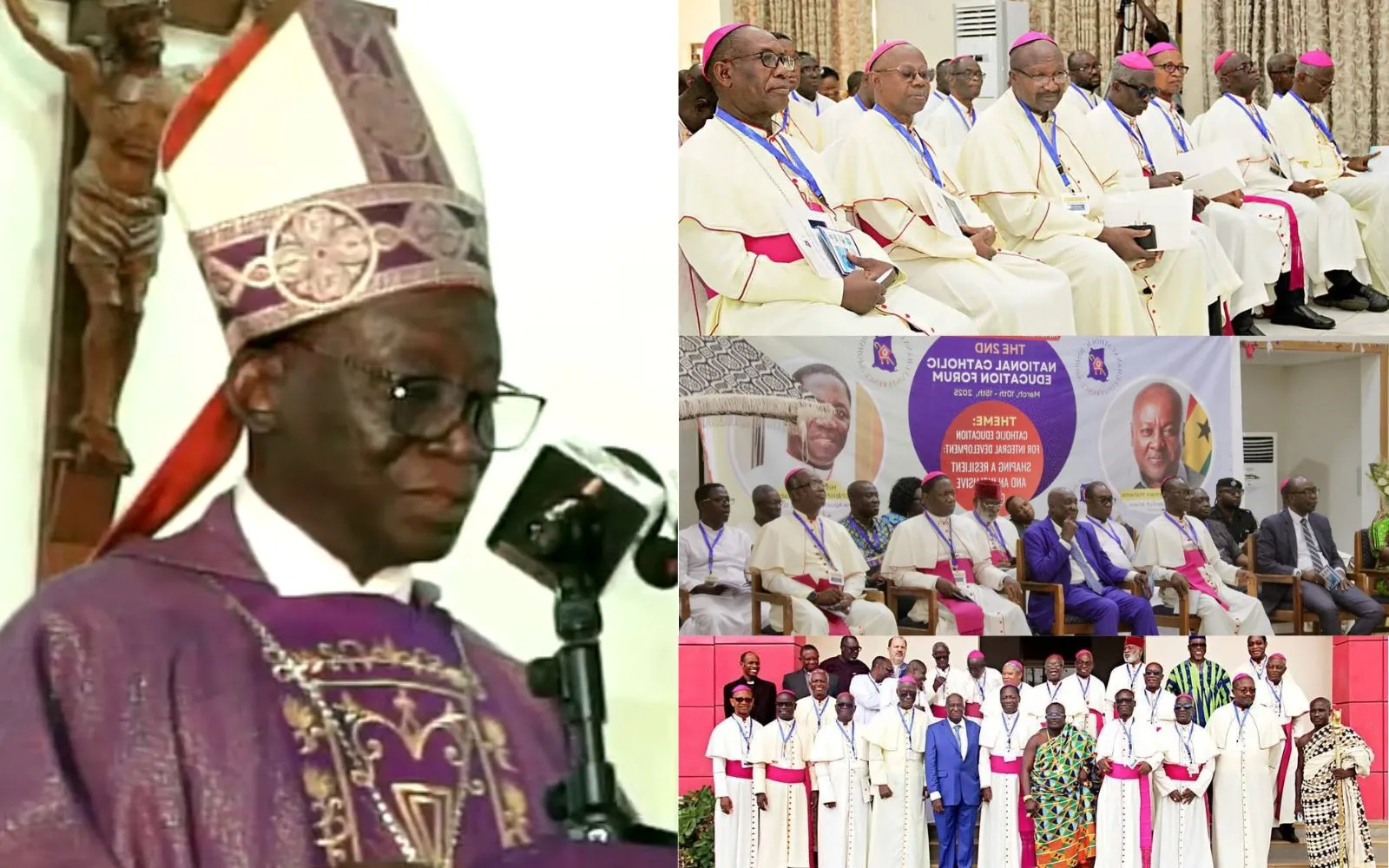After nearly 80 years of French colonization, Madagascar gained its independence in 1960. Pope Francis praised the country’s aspiration to “stability and peace, through a fruitful democratic alternation that shows respect for the complementarity of styles and visions.”
He urged political leaders in the country to continue fighting corruption, instability and exclusion, which foster “conditions of inhumane poverty,” and encouraged them to work toward a society with a “better division of income and an integral development of all, particularly those most poor.”
The pope added that this development does not only mean social aid, but also giving the poor and excluded a voice in their own development.
Furthermore, he added, the rich natural resources and environment of Madagascar must be protected as part of the country’s “integral development.”
“This calls not only for finding ways to preserve natural resources, but also for seeking ‘comprehensive solutions which consider the interactions within natural systems themselves and with social systems. We are faced not with two separate crises, one environmental and the other social, but rather with one complex crisis which is both social and environmental,’” he said, quoting his environmental encyclical Laudato si’.
“In a word, there can be no true ecological approach or effective efforts to safeguard the environment without the attainment of a social justice capable of respecting the right to the common destination of earth’s goods, not only of present generations, but also of those yet to come,” he said.
The Holy Father also praised the aid and support to Madagascar provided by many international countries, but he cautioned against a global economy that ignores or seeks to eliminate cultural diversity and local interests or traditions.
“...that openness can risk turning into a presumptive ‘universal culture’ that scorns, submerges and suppresses the cultural patrimony of individual peoples,” Francis said.
“An economic globalization, whose limitations are increasingly evident, should not lead to cultural uniformity. If we participate in a process respectful of local values and ways of life and of the expectations of citizens, we will ensure that the aid furnished by the international community will not be the sole guarantee of a country’s development.”
“The people themselves will progressively take charge and become the artisan of their own future. That is why we should show particular attention and respect for local civil society,” he added.







